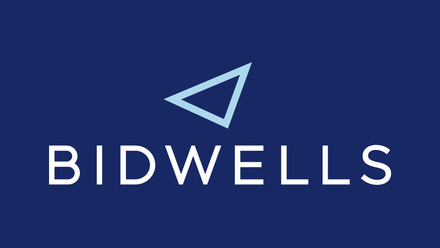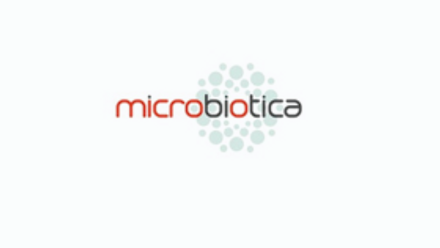CEO Update - 16 June 2025
And on a weekend where our King Charles III both received a military parade (Trooping the Colour used to mark the sovereign’s official birthday in Britain since 1748) and celebrated the rich diversity of UK society in his honours list (congratulations to Dame Chi Onwurah MP) – there was a strong contrast to the USA where there seemed few who bridged between the “no King/Pride” marches in Boston and the unprecedented US Army 250th Anniversary Parade in Washington held on President Trump’s 79th birthday.
The BIA’s main focus this week is to formally launch London Life Sciences Week 2025, and to encourage global players to visit and participate in our UK ecosystem this autumn. Taking place from 16–21 November, this year’s event will host over 50 gatherings and welcome over 1,000 investors. It’s where the world comes to the UK and sees for itself how easy it is to do business here. I look forward to formally launching the week on the UK stand at BIO tomorrow alongside Science Minister Lord Patrick Vallance and London & Partners CEO Laura Citron.
BIA responds to positive UK government Spending Review
Last week’s Spending Review was a strong signal of confidence in the life sciences sector’s role as an engine for UK economic growth. The renewed commitment to R&D through UKRI, in conjunction with targeted support for scaling life science companies through the British Business Bank, is exactly the kind of long-term thinking we’ve championed. It’s also encouraging to see major investment in transformative technologies like AI and the Health Data Research Service, both of which have the potential to accelerate drug discovery and improve NHS efficiency. New support for medicines manufacturing will help us compete for international investment and deliver skilled jobs across the UK. The Chancellor’s pledge to give the British Business Bank greater operational freedom is crucial to unlocking pension reform and deepening our venture capital ecosystem. Martin Turner and I took many of you through this on our webinar last week which is now available on our website so do take a look and read our analysis blog for more detail.
NHS becomes first health system to roll out GSKs ‘Trojan horse’ blood cancer drug in relapsed/refractory multiple myeloma
It’s great to see the UK leading the world once again in the adoption of cutting-edge treatments, as the NHS becomes the first health system globally to roll out the “Trojan horse” blood cancer drug, belantamab mafodotin, which GSK researched and developed in the UK. The MHRA granted approval in April, followed swiftly by NICE guidance and Cancer Drugs Fund support, making the UK the first country in the world to approve it. Hesham Abdullah, Senior Vice President, Global Head Oncology, R&D, GSK, said:
As the only BCMA-targeted ADC therapy, Blenrep has the potential, supported by robust phase III data, to extend survival and remission versus standard of care and redefine treatment at or after first relapse.
It is particularly impactful for me to see new therapies coming through in blood cancer this year as we partner with Blood Cancer UK. Tracey Loftis, Deputy Director of Policy and Influencing at Blood Cancer UK, welcomed the news saying:
We’re pleased NICE has approved Blenrep to treat myeloma in combination with bortezomib and dexamethasone (BorDex) therapy. This approval for use in England, Wales and Northern Ireland as a second-line treatment option means that people here in the UK will be the first in the world to receive it. Blood cancer is the UK’s third largest cancer killer, and myeloma remains an incurable blood cancer. Yet access to innovative therapies like Blenrep will provide renewed hope for many newly diagnosed.
BIA Team Rides to Support Blood Cancer UK
The weekend’s real sporting highlight wasn’t the tennis at Queen’s or the WTC final – it was the iconic London to Brighton Bike Ride, where the BIA Biohazards took on the 55 miles and 900m of elevation in support of our charity partner Blood Cancer UK.
A fearless peloton of BIA staff and friends from Johnson & Johnson powered through the Sussex countryside and conquered the looming climb up Ditchling Beacon, before descending triumphantly to the Brighton seafront for some well-earned recovery.
The team have raised over £3500 and counting to fund the amazing work of Blood Cancer UK. Huge thanks to everyone who’s supported us so far, and there’s still time to donate and help us reach the finish line in the lab as well as on the road. Every pound counts – please donate here.

Mindful of looking East as we travelled West
It was a busy week in Cambridge last week as we held our TechBio X event at AstraZeneca’s Discovery Centre and joined a buzzing Cambridge community with its doors wide open to collaboration. I was struck by how many conversations I had about the impact of AI on various parts of the drug discovery pathway. The week ended with the announcement that AstraZeneca has signed an AI-led research agreement with China's CSPC Pharmaceutical Group worth up to $5.3 billion, which will help develop therapies for chronic conditions. It’s a timely reminder that global innovation and competition for investment is no longer primarily between the US and Europe and as we develop our business strategies we need to be evermindful that China is reaping the rewards of significant investment in AI and biotech over the last decade.






